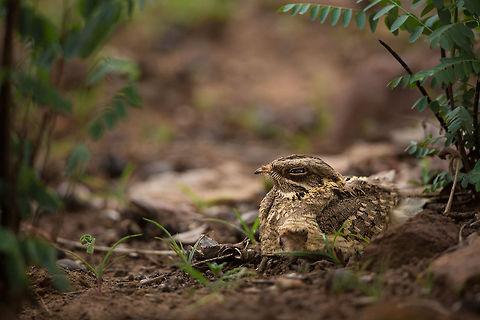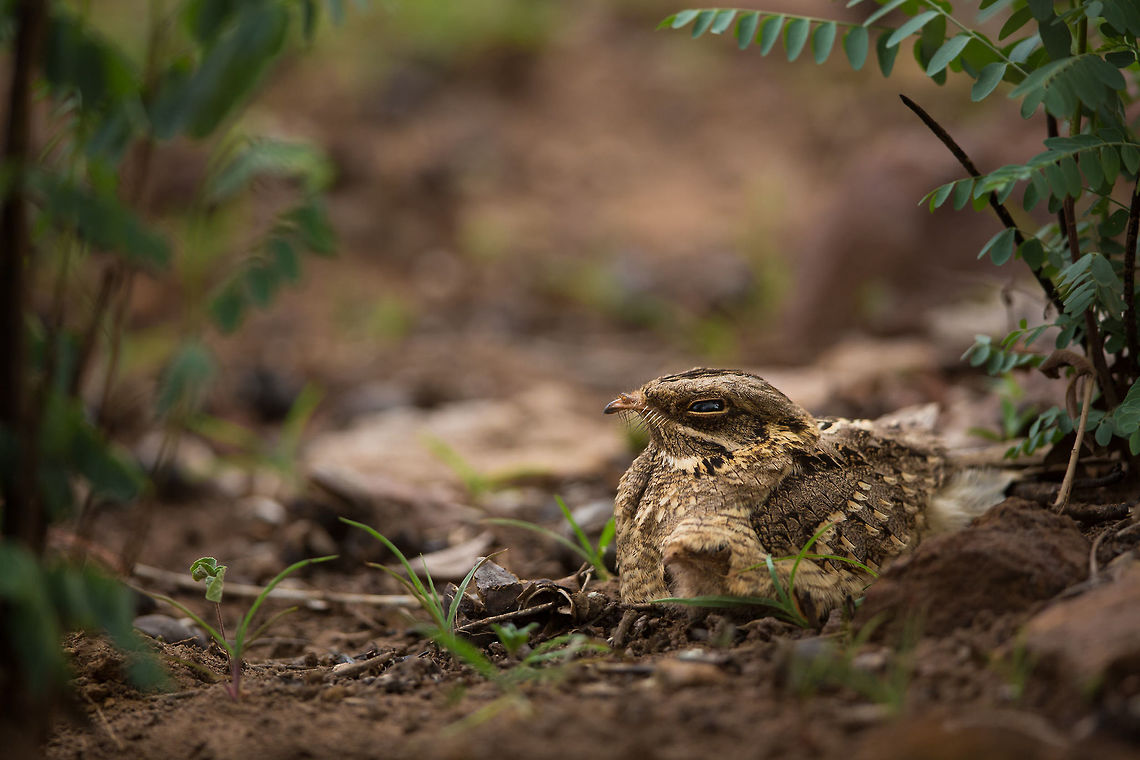
The Indian nightjar is a small nightjar which is a resident breeder in open lands across South Asia and Southeast Asia. Like most nightjars it is crepuscular and is best detected from its characteristic calls at dawn and dusk that have been likened to a stone skipping on a frozen lake - a series of clicks that become shorter and more rapid.
Similar species: Nightjars
By JohnR
All rights reserved
Uploaded Jun 21, 2016. Captured Jun 17, 2016 16:42 in Unnamed Road, Ranatalodhi, Maharashtra 441222, India.


comments (7)
"Avoiding predation is a critical aspect of fitness and survival for many animals. Camouflage is one of the most common forms of defense, and it involves any strategy used for concealment. Nightjars have cryptic plumage that resembles, bark, dirt, or leaf litter. They are camouflage champions that are able to fade into their surroundings. Nightjars are nocturnal, and they rest on the ground or horizontally along branches during the day. As primarily ground-nesting birds, they are exposed and vulnerable; their self-preservation depends on the art of disguise. Researchers have discovered that each individual bird chooses a location to rest based on what best matches their plumage. So, they purposely nest in areas that enhance their own unique markings. Then, if a predator approaches, nightjars close their eyes and rely on their camouflage to conceal themselves. This may not seem remarkable, but it is. Most ground-nesting birds simply flee when faced with a predator. Somehow, nightjars have a sense of self-knowledge, which they use to determine how they relate to their environment, and then they make the choice to camouflage themselves. Plus, they change their resting site daily to avoid being predictable. Nightjars emerge at night, when they silently fly around and feed on insects. Their nocturnal presence is usually made known by their loud calls and their habit of swooping around street lights with their mouths wide open as they gorge on the buffet of bugs that had been attracted by the lights. {Indian Nightjar (Caprimulgus asiaticus) spotted in India by JungleDragon user, JohnR} #JungleDragon" Posted 7 years ago